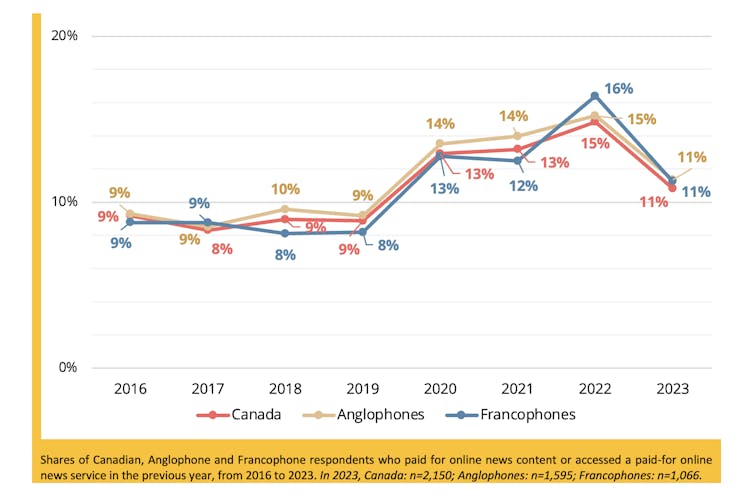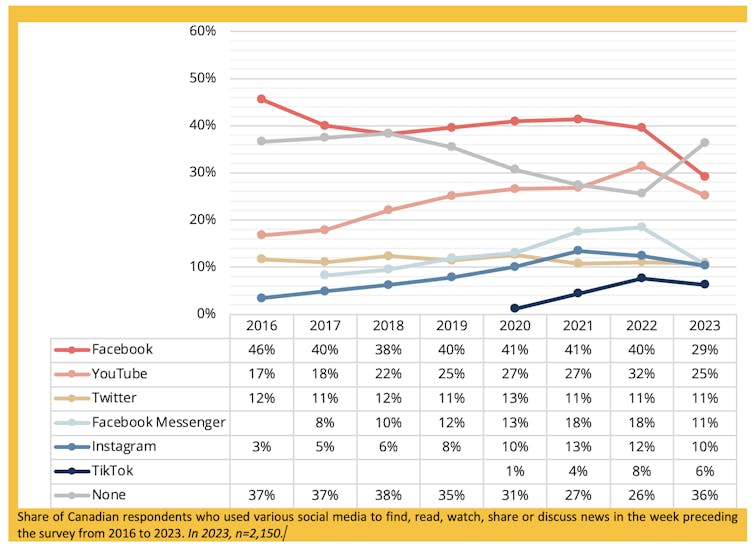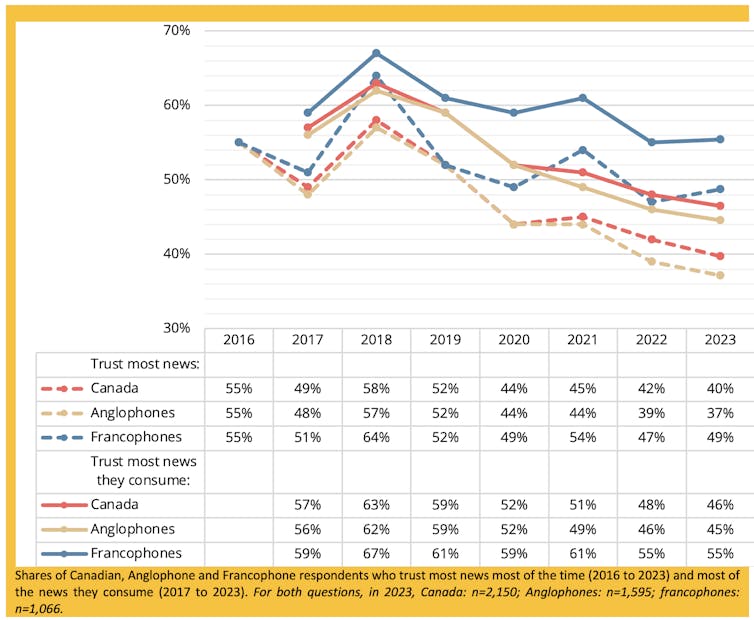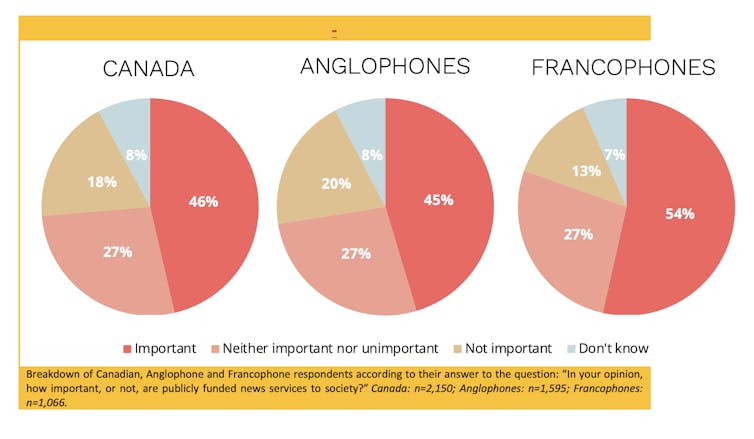Canada News
Canadians are losing their appetite for news — and trusting it less

It’s based on a survey of more than 90,000 online news consumers in 46 countries, including Canada — covering half of the world’s population. (Pexels Photo)
Canadians have less appetite for news and are less inclined to pay for news online, according to the latest findings from the 2023 Digital News Report survey by the Reuters Institute for the Study of Journalism at the University of Oxford.
The Digital News Report, conducted by an international team of scholars, is one of the most comprehensive surveys about digital news consumption around the world. It’s based on a survey of more than 90,000 online news consumers in 46 countries, including Canada — covering half of the world’s population.
The new data on Canadian news habits shows payment for online news or access to paid services (via a library, for example), which had been growing slowly in recent years, slipped by four percentage points — from 15 per cent in 2022 to 11 per cent in 2023. This is the first decline since 2016, when Canadian data was first collected, and the lowest result since 2019.

Reuters Institute/Oxford University, Centre d’études sur les médias, CC BY
Canadians also seem less and less interested in news: 80 per cent say they’re interested in news in 2023, a drop of six percentage points since 2021. However, fewer say they actively avoid the news (63 per cent) compared to 2022 (71 per cent).
Social media less used for news
In this context of relative disinterest in news, and while Meta is reducing the importance its platforms place on news content, more Canadians say they did not access news via social media in the week preceding the survey. This share rose from 26 per cent to 36 per cent between 2022 and 2023 — the highest result since 2018.
All major social media platforms are down with the exception of Twitter, which remains stable at 11 per cent for this first survey since its acquisition by Tesla founder Elon Musk. Facebook remains the most used social media when interacting with the news, at 29 per cent, but down 11 percentage points from 2022 (40 per cent) and by far its lowest result since 2016.

Reuters Institute/Oxford University, Centre d’études sur les médias, CC BY
Still, one in four Canadians gets news primarily from social media. Television news shows remain the main source of information for the largest number of respondents (40 per cent), followed by websites and news apps (27 per cent). Those figures are the same as last year.
Mobile phones remain the most popular device for consulting news online, used by one in two people (52 per cent) in the week preceding the survey. But this number is down nine percentage points from 2022. This is the lowest result since 2019, which seems consistent with declining interest in current affairs and less contact with news on social media.
Trust continues to decline
Trust in the news continues its slow descent among the country’s anglophones: 37 per cent say they trust most news, most of the time. For French-speaking Canadians, this confidence is higher (49 per cent) and up slightly from a year ago (47 per cent in 2022).

Reuters Institute/Oxford University, Centre d’études sur les médias, CC BY
Francophones more optimistic
As in previous years, Canadian francophones show an overall more positive view of their news ecosystem than anglophones, perhaps due to the language barrier and the francophone market being less oriented towards foreign media.
In addition to a more generalized confidence in the news, one of many examples is the level of concern about the possibility of sorting out the truth from the false online. This concern is much less widespread among francophones (47 per cent) than anglophones (65 per cent). French-speaking Canadians are also more likely to rate both algorithms and news professionals favourably as intermediaries for news access.
The Digital News Report looks extensively into people’s perceptions of having social platforms like Facebook, Twitter and Google push news stories to readers based on their past habits. In Canada, 29 per cent of francophones and 25 per cent of anglophones find algorithms based on past consumption “a good way” to access news.
Canadians were slightly more skeptical about news stories selected by editors and journalists at media outlets — 26 per cent of francophones and 19 per cent of anglophones agree that having stories selected by editors and journalists is a good way to get news. All of these figures are down by around 10 percentage points since 2016.

Reuters Institute/Oxford University, Centre d’études sur les médias, CC BY
In these challenging times for the country’s news ecosystem, publicly funded news services are not widely seen as part of the problem.
More than half of francophones (54 per cent) and 45 per cent of anglophones believe in the importance to society of publicly funded news outlets, such as CBC and Radio-Canada. Only 13 per cent of francophones and 20 per cent of anglophones feel they are not important, with the remainder either in between or refusing to comment.![]()
Sébastien Charlton, Lecturer, Department of Information and Communication, Université Laval and Colette Brin, Professor and Director, Centre d’études sur les médias, Université Laval
This article is republished from The Conversation under a Creative Commons license. Read the original article.





















